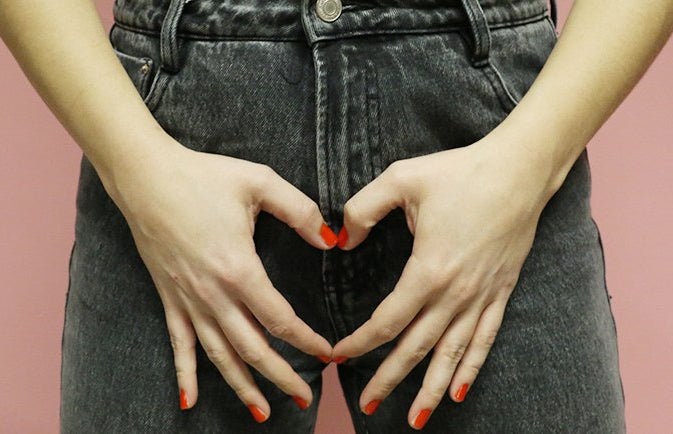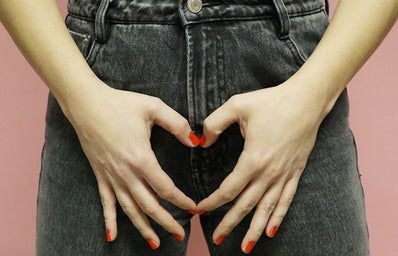Cardi B and Megan Thee Stallion’s song WAP (Wet Ass Pussy), released August 7th 2020, has grown infamous for its “vulgar” themes and lyrics. Certainly, it is explicit – there’s no denying that – be warned. The “vulgarity” of the song however, is grounded in its female articulation.
My point isn’t that women should be able to talk about these things because men can, but rather I want to look at why women can’t. I took this online class on Sexuality in Canada this summer that really got me thinking about the policing of female sexuality. Even if you’re not a history student, as I am, you should know that women throughout history have been systematically oppressed – especially women of colour. I’m not going to summarize the entire global history of female oppression, but essentially, whether it’s about owning our own property, being able to leave our homes without escorts, or even pursuing the lives we want, it’s been a shit time for women. A key tool in successfully oppressing women has been policing our sexuality.
In early 20th century Canada, the link between women and sexuality was inescapable. Juvenile courts were obsessed with containing girls’ bodies, preaching about the “fallen woman” trope. Delinquency in women was conflated with precocious sexuality, which in turn was blamed for the decline in Victorian family structures. Young women were brought to juvenile court on principally sex-related charges: frequenting boys, having the “wrong” boyfriend, the “wrong” friends, going to cinemas, restaurants, dance halls — all linked to inappropriate urban sexual behaviour. In addition, prostitution laws allowed for the arrest of “all common prostitutes or night-walkers wandering in fields, public strests or highway and not giveing a satisfactory account of themselves.” The wording of the laws thus criminalizes women’s independent movement and sexuality just as much as their potential occupation. (I’ll also add that Black women, already widely assumed to be criminally sexual, were therefore especially vulnerable to these prostitution laws!! – read Robin Maynard’s Policing Black Lives: State Violence in Canada from Slavery to the Present)!! The interesting thing though is that boys’ court cases were not defined by a sexual lens. Most often, they were brought in for crimes of theft, vandalism or loitering. None of these were linked to their sexual character, but instead concerned their qualities as future breadwinners. It is thus clear that women were policed through and limited by their sexuality.
We’ve now seen different waves of feminism (thankfully progressively no longer exclusively-white) fight for our rights, but the fight is indubitably far from over. Every time a woman is victim blamed in a rape case, the onus of sexual delinquency is attached to her. And If you look at the male defendants, for example Brock Allan Turner, society appeals to their lost career, their lost potential. Independent female sexuality remains a problem for our society. Her sexuality remains in the hands of men. As such, women are supposed to be “innocent, virginal and pure,” whereas men control their sexual destinies. Any departure from this narrative is seen as “deviant” (as seen with queer relationships as well!). One only has to look to the hypersexualisation of women of colour to see this very narrative persisting today.
If you watch pornography****, a majority of the films are dedicated to a male audience. For example, “Point of View” videos never refer to the female point of view – only men. Pornography films also often represent sex in an idealized manner that caters, in my view, to the male ego. I understand not wanting to watch all the “failed” moments and such, but I think the omission of certain elements, including the female “build up” is detrimental. The videos seem to empower men into thinking they can just ‘stick it in’ and suddenly the woman will be experiencing the most intense pleasure she’s ever felt in her life – And that trope is encouraged by the fake moans expressed by the female! These moans teach young girls that moaning expresses not their own pleasure, but the pleasure they’re expected to feel, the pleasure the man thinks he’s generating. Women still cannot express pleasure for themselves. This issue also gives men unrealistic expectations as to their own abilities to pleasure a woman (which is a problem in itself and not only because of its disappointing consequences for women).
Another more explicit occasion in which porn highlights the sexual double standard occurs is during Hentai productions, where rape is a central element. Moving beyond a detrimental negligence of female sexual agency, these videos fetishize the “innocence” of women who don’t want to have sex. The films send conflicting messages as to the intent of these women (do they want it or don’t they?) that confuse concepts of consent in real life. What if I say no and my partner believes that that means he has to persuade me? That my “modesty” is simply a charade? I don’t have to analyze these clips very hard to understand that they teach men that rape is okay.
It’s clear then that women are pushed into certain sexual roles that cater to a male-directed narrative. Indeed, if a woman has the audacity to enjoy sex “as much as a man” – to have casual sex – she isn’t hailed the way men are. She’s not a “sex-god.” She doesn’t “have game.” She’s a “slut.” That role allegedly isn’t for her, it’s for men. This all ties back to WAP.
WAP is a song that does not give into the version of sexuality that is dictated to women by men. I’m not saying that all women have to adhere to the sexuality represented in WAP (I for one am not a huge fan of the term “gobble”). However, what I think is amazing is that we finally get to hear the voices of women related to sexuality. I can FINALLY publicly encounter sex from a female perspective! Cardi B and Megan Thee Stallion express their agency in pleasuring a man and in asking him to pleasure them! The role of the woman in sex is empowered in a way that is so rarely done in public. For example, Megan Thee Stallion subverts the stereotypes of submission associated with giving oral sex to a man by referring to herself as a dominant carnivore “in the food chain.” She is sexy – she is powerful – and she’s not ashamed. The rappers repeatedly reference their skills and tips for pleasing a man, which no longer feels subordinate. Overall, the song opens up the conversation about female sexuality away from male narratives. Because young women so rarely get to see sex from this perspective, I’m a huge defender of the song. It’s also just super catchy.
***By the way, don’t use Pornhub. (https://www.vice.com/en_us/article/wxqy4z/petition-shut-down-pornhub-tra…) Bellesa is a female friendly porn site that actually supports its sex workers!


